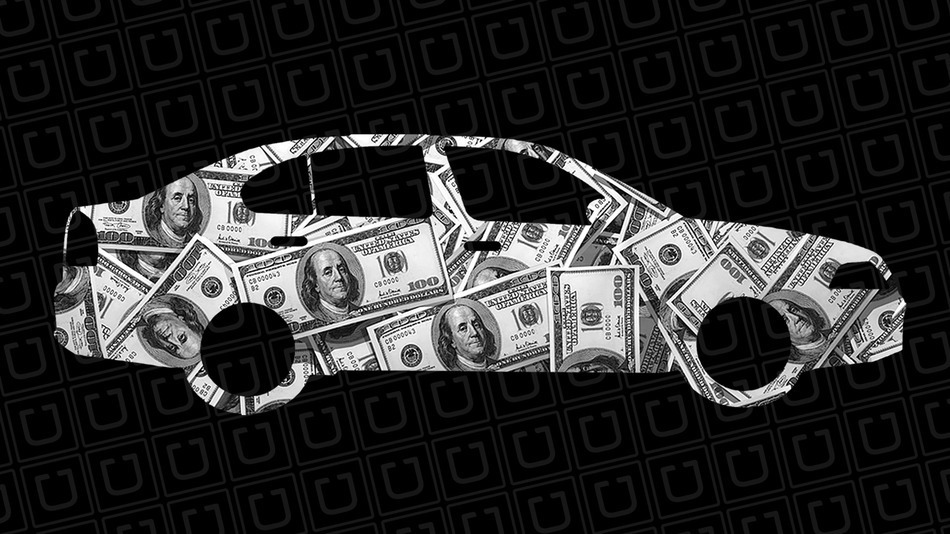Goodbye sharing economy, hello to the on-demand economy…
Bloomberg’s Eric Newcomer reported that on a recently Uber quarterly call with shareholders, the company’s head of finance, Guatam Gupta announced that Uber’s losses continue to escalate. Total losses in the first half of 2016 totaled an astounding $1.2 billion. According to Bloomberg’s sources, there are several reasons for this. For one, subsidies for Uber’s drivers are responsible for the majority of the company’s losses globally. On top of that, Uber has been investing billions of dollars in China and it’s yet to turn a profit there. And of course, there’s staving off competition. Most notable, Uber has been engaged in a heavy price war with Lyft throughout the year to expand its market share as well as gain ground over other competitors in each market around the world. Uber told investors that it’s willing to spend aggressively to do so.
Of course all of this lead the press and the interwebz to cry that the “sharing economy bubble is bursting” and that Uber and its astronomical valuation of $69 billion are examples of runaway capitalism, a “shell game,” and/or a company trying to take on too much all at once with finite resources. Yet, existing resources aren’t enough it seems to take over the world in addition to its other significant investments in autonomous vehicles, in which Uber CEO Travis Kalanick said he “can’t be wrong” about, as well as logistics and delivery services and more. Add to this, a growing portfolio of settled and impending lawsuits. The company will eventually have to raise again or finally take the company public to continue its crusade.
A key question to consider is whether or not Uber, regardless of its current impact on the transportation industry, is ever going to turn a profit. This question is leading experts to speculate whether or not its business model is actually lucrative in the long term to all stakeholders including investors, service providers (drivers), and Uber itself along with the “Uber of” every other industry.
There’s much at stake. But, I also think there’s more to the story.
There’s a difference between losing money and investing. There are positive signs that already point to the promise of Uber’s potential.
For instance, Uber continues to increase global revenues. During the first half of 2016, Uber’s bookings grew significantly from Q1 to Q2, from +$3.8 billion to more than $5 billion. Its net revenue also grew ~18%, from about $960 million in Q1 to about $1.1 billion in Q2. Uber spokespersons have told investors that it currently boasts between 84% and 87% of the market in the U.S.
More so, Bloomberg reported in July that Uber lost at least $2 billion over the last two years trying to compete in China. The good news is that Uber won’t recognize additional losses in China on its balance sheet after August. Recently,Uber forged a deal with its largest global competitor, Didi Chuxing, to pull out of China. In exchange, Didi gave the company 17.5% of its business and a $1 billion investment, which the company will show on its books soon.
More so, compared to Lyft, Uber’s story further gains credibility. While Lyft is a much smaller company by trip volume, it appears, according to Bloomberg, to be losing more money than Uber in the U.S. Bloomberg reported earlier this year that Lyft told investors that it will keep its losses under $50 million a month or about $150 million in a quarter. Furthermore, in July, Uber delivered 62 million rides to Lyft’s 13.9 million. However, Uber’s driver subsidies were spread across a greater number of rides thus increasing its losses.
In a conversation for a story with my friend Erin Carson of CNET, I talked about Amazon and its vision, ambitions and resulting investment strategies to change the way you make purchases and beyond. From Kindle to Echo to Dash to Prime content, etc., Amazon is investing in innovation and disruption across multiple industries while increasing revenue and opening doors to new opportunities along the way.
“Uber’s introduced an entirely new way to get from point A to point B not just in the United States, but around the world,” Solis said. “That comes at a tremendous cost.”
But, Solis said investors are willing to take the risk with the idea that something bigger is coming globally.
Along those lines, Solis isn’t worried about the effect of Uber’s finances on the sharing economy.
“Uber has long since left behind the sharing economy,” he said. Uber’s been a catalyst for the on-demand economy, which is evident every time you hear about a company that wants to be Uber of whatever.
It’s conditioning consumers to get what they want, when they want it, with a smartphone and an app he said, and that’s going to be far more powerful than the sharing economy.
“It’s not only paving the way for the future of on-demand transportation but it’s also changing consumer expectations for it to bring on-demand services across multiple industries,” he said. “Uber is much bigger than transportation.”
I see Uber’s play as an investment in not only its own business but also, it’s driving a formidable migration away from the sharing to the on-demand economy aka what I also call the selfish economy. Uber isn’t just a transportation company, it’s a platform and an ecosystem. Its changing consumer expectations and behaviors as a result beyond transportation. It’s even changing how automotive manufactures re-imagine the future of transport and ride/hail services.
As such, it’s not uncommon to subsidize market shifts, growth and expansion. Amazon, Tesla, Spotify, among many others, invest similarly to pioneer new markets and accelerate consumer adoption.
None of this is easy. Uber’s work is relentless as it takes on taxi industries globally, lobbies governments, fights class action lawsuits, recruits, cultivates and subsidizes drivers, further develops its platform to attract developers to build new apps/services and continues to grow markets city by city and country by county. While $1.2 billion in losses is massive, the company’s impact over time requires a broader discussion and appreciation for a different type of value, impact and success in the face of innovation and disruption.
Connect with Brian!
Twitter: @briansolis
Facebook: TheBrianSolis
LinkedIn: BrianSolis
Youtube: BrianSolisTV
Snapchat: BrianSolis






Like you, I am unconcerned with the initial loses but I am concerned about the outcome of the “sharing” economy. The concept originally began as a means of people making greater use out of their possessions and turning them into revenue streams that at least offset the cost of ownership. It’s becoming something different and more ominous to me.
AirBnB has been overtaken by speculators who buy up property in expensive markets (like San Francisco), squeezing out the low-income people for whom the service was actually created for and depriving municipalities of tax revenue. Uber is now investing in company-owned autonomous vehicles that will be rented to drivers. It isn’t the end of property ownership, it is just shifting the ownership of property to corporations that allow customers to borrow their property in exchange for payment to the corporation.
About 1500 years ago, this was called feudalism. The ruling class owned all property which was “given” to freemen and serfs in exchange for substantial support of the ruling class. Anyone who could not come up with the payment either starved or was put in jail.
Google’s planned extension of Waze to include paid ride sharing could dent the progress of this paradigm shift because they don’t need the revenue that Uber and its competitors need to survive. It can actually sell the information it gathers from users and riders. But Google’s intent goes back to the original concept of the “sharing” economy that Uber and AirBnB have abandoned in exchange for quickly ramping the user base.
Unless the sharing-economy companies return to their original business plan (which is, admittedly, far less remunerative) we will either see them succeed in creating a new feudalism or they will crash when the public backlash causes their user base to abandon them.
I agree, Brian. It took 20 years for Amazon to turn a profit on its retail operations. Is anyone arguing that that business is a “shell game?”
Although Uber is taking this hit in Q2 of 2016, it seems as though they will bounce back in time. Like you said, Uber is taking on class action lawsuits, recruits, etc., they aren’t going to be increasing profits every quarter. This new means of transportation is phenomenal but there are flaws. Once Uber figures out how to fix these flaws their shouldn’t be a variance of fluctuation in their revenue stream. I think Uber will turn it around and figure out what they need to do to generate profit on a consistent basis. If they don’t, Lyft will be there to clean things up and potentially become the front runner.
I agree. Although, Uber is suffering some loses right now, I think they will make a recovery. They are still very new and these are probably instances that they were not expecting to happen. Uber will need to adapt their strategies in order to overcome these threats.